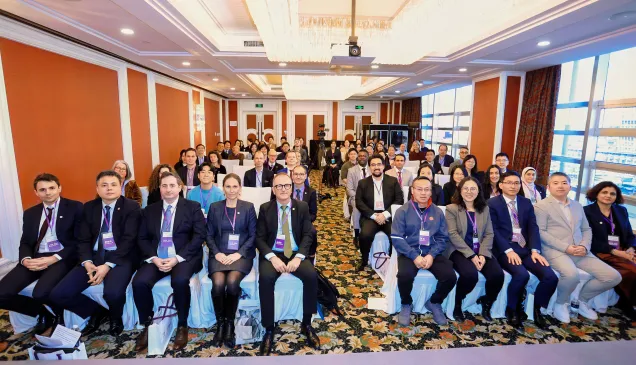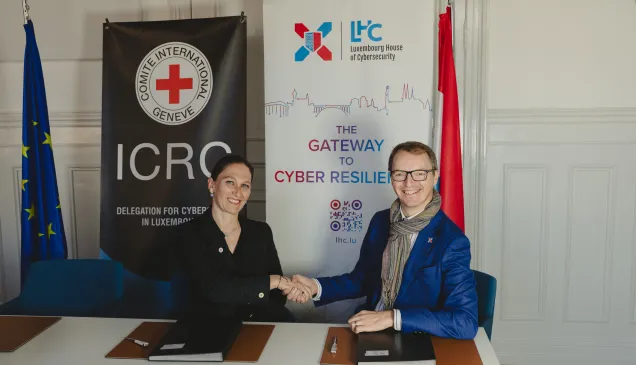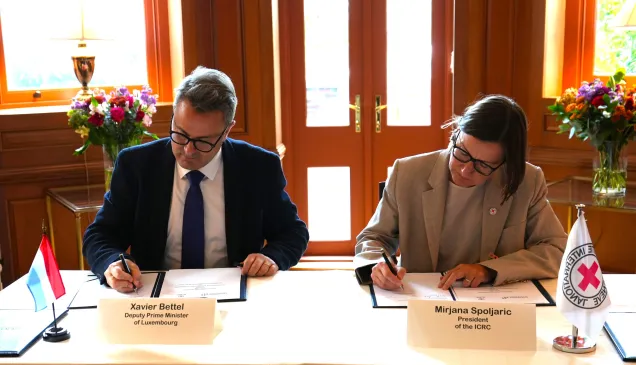The ICRC opens a new delegation for cyberspace in Luxembourg

The International Committee of the Red Cross (ICRC) and the Directorate for Development Cooperation and Humanitarian Affairs of the Ministry of Foreign and European Affairs of Luxembourg announced today the official opening of a humanitarian office for cyberspace. The office will benefit from cutting-edge infrastructure and a supportive ecosystem to create a safe testing ground for research and development on issues of technology, policy, operating modalities, and law related to cyberspace.
“We are very proud to be able to provide this safe space to the ICRC and to enable research and development aimed at increasing the protection of people affected by conflict and violence,” said Franz Fayot, Luxembourg’s Minister for Development Cooperation and Humanitarian Affairs. “I am confident that Luxembourg’s vast cyber and tech ecosystems can offer a valuable contribution to supporting the ICRC in achieving this critical objective”.
The systemic and operational shift of the humanitarian sector toward digital tools and solutions in recent years has enabled the emergence of new services and forms of aid. This includes mobile phone cash transfer programmes, the inclusive sharing of information with people affected by conflict, offering internet and mobile phone connectivity, as well as connecting people to programmes that help secure their data or help them find missing family members.
“We have a duty to use the opportunities offered by digital transformation responsibly and ethically to better protect people affected by conflict and other situations of violence,” said Martin Schüepp, the ICRC’s director of operations. “The ICRC thanks the government of Luxembourg for its support of this new office and for its recognition of the importance for humanitarian organizations to further study and embrace cyberspace as a vital tool to assist those in need.”
Recent events have highlighted humanitarian organizations’ need to invest more in issues of cyberspace. InJanuary, the ICRC revealed that it faced a sophisticated cyber-attack, with the hacking of servers hosting personal humanitarian data belonging to more than half a million people worldwide. Cyber operations are becoming a reality of armed conflict, with a growing number of states developing military cyber capabilities. In addition, disinformation campaigns affecting people or humanitarian organisations online and off have multiplied.
Our top objectives are to ensure that digital technologies do not expose people to further risk and that digital assistance programmes effectively create positive outcomes for people in conflict,” said Schüepp. “This new office will advance technical solutions that can be safely deployed and that conform to our fundamental neutrality, impartiality, independence and humanity, including in a digital space.
“The inauguration of the Delegation for Cyberspace today marks an important milestone, not only for our trusted partnership with the ICRC, but for the humanitarian sector as a whole”, Minister Fayot concluded.
For more information: visit the ICRC delegation for Cyberspace webpage
Christoph Hanger, ICRC Geneva, +41 79 731 04 03 changer@icrc.org
Anne Nicolas, Directorate for Development Cooperation and Humanitarian Affairs of the Ministry of Foreign and European Affairs of Luxembourg, +352 247 72395, Press.cooperation@mae.etat.lu



